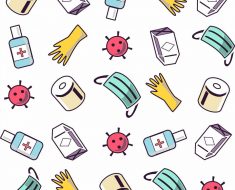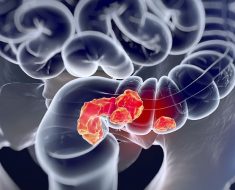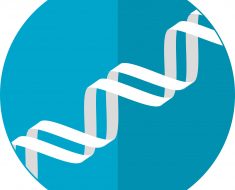Women with HIV are failing to get the support they need during menopause, according to a new study led by UCL.
The Positive Transitions through the Menopause (PRIME) report, which is one of the largest of its kind, involving almost 900 women living with HIV aged 45-60 across England, found that 47 percent of women with HIV do not have the information they need to manage menopause.
In a related study by the PRIME team, a survey of 88 GPs found that less than half of GPs (46 percent) feel confident managing menopause in women with HIV, despite the vast majority (96 percent) reporting they feel confident managing menopause in general.
The most common concerns among GPs were potential drug interactions between hormone treatment and HIV medication (79 percent) and missing an HIV-related diagnosis (51 percent).
Treatment advances mean that more and more people living with HIV are reaching their 50s and beyond. One third of people living with HIV in the UK are female; approximately 10,000 are of menopausal age, with a further 10 to 20,000 predicted to reach this age group in the next 5 to 10 years. Despite this, a recent report by the Terrence Higgins Trust ‘Invisible No Longer’ highlights the lack of research on women living with HIV. The PRIME Study is an important step towards addressing this gap.
“One of the key findings of the study was the lack of information on menopause and support available to women with HIV. There are examples where women are going back and forth between their GP and HIV specialist, creating additional frustration and uncertainty during an already unsettling time. These findings may well apply to other groups of women managing long-term medical conditions such as those with diabetes.” said study lead Dr Shema Tariq, Clinical Research Fellow and Consultant HIV Physician (UCL Institute for Global Health)
“We recommend that HIV clinical services, GPs and HIV support services be aware of the potential impact of the menopause transition on the health and well-being of women living with HIV, and ensure that services are able to support women during this time.”
Key recommendations of the report include:
- High-quality and accessible information about the menopause should be available to all women living with HIV attending HIV clinics
- Menopause among women with HIV should be managed within primary care, supported by close liaison with HIV specialists
- Primary care staff should receive training to improve confidence and skills related to managing menopause in women with HIV
- Peer-support for women living with HIV transitioning through the menopause
- Further research on the impact of hormone replacement therapy on mental health, clinical outcomes and quality of life in women with HIV
- A more joined up approach among commissioners of care across the HIV pathway, and a greater focus on the impact of menopause on well-being
Further findings from the report:
The most common symptoms reported among women with HIV during menopause are:
- Somatic symptoms (89 percent) including hot flushes, muscle and joint pains and sleep disturbance, while 78 percent are affected by psychological issues including anxiety and depression; and 68 percent of women are affected by urogenital symptoms including vaginal dryness and sexual problems.
- Women living with HIV described particular challenges during the menopause as a result of living with HIV, including difficulties distinguishing between menopause and HIV-related symptoms, accessing appropriate menopause care, and the impact of menopausal symptoms on HIV management.
- Use of hormone replacement therapy to improve menopausal symptoms was strikingly low among women with HIV. Some women reported they did not want to become overburdened by medication, while others simply did not have access to information to make an informed decision. Less than one-in-ten women living with HIV with menopausal symptoms were using hormone therapy.
Source: Read Full Article





